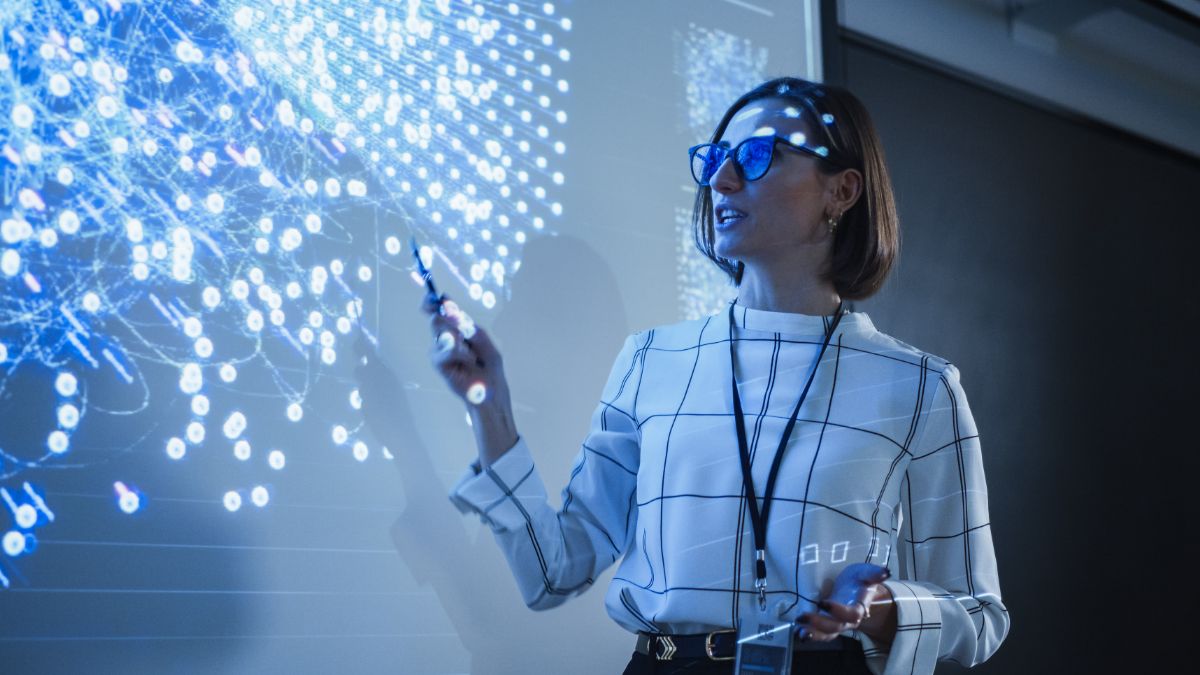AI in Teaching
RIT recognizes the potential benefits to higher education that come with generative AI.
Many faculty are already incorporating AI into their curriculum and teaching strategies. By using generative AI to complete routine administrative tasks, faculty can focus on more value-added aspects of the learning experience, such as curricular design, course content, and creating effective and engaging learning activities and assessments. Faculty can also employ AI tutoring systems to provide additional support to students, adapt to individual needs and learning styles, and provide support when it’s most needed.
Because RIT believes generative AI can enhance human capabilities in higher education rather than replace them, faculty will also prepare students to think critically about responsible and ethical use of the technology. RIT’s reflective, curious and entrepreneurial faculty are well-placed to face the challenges AI poses for higher education, to drive an exciting transformation for their students and themselves.
The Center for Teaching and Learning provides faculty with opportunities to understand how best to incorporate generative AI into their work with students and supports on-going professional development in this space. Learn more about Generative AI in Education
The Provost’s Learning Innovation Grants
The 2024 Provost’s Learning Innovation Grants includes a Generative AI Focus Grant option for projects.
Generative artificial intelligence has exploded in use and as a topic of discussion and concern since the launch of ChatGPT. While many faculty are currently working with generative AI in their classrooms or research, others are still just beginning to understand how it affects their discipline and the workplace students will graduate into. This focus area invites proposals for incorporating generative AI as one tool students will learn to use to achieve course learning outcomes.
Strong proposals for Generative AI for Teaching and Learning Grants will:
- Include student use and practice with generative AI in major activities and projects to build their skill in the use of the technologies currently available and prepare them to use future generations of AI in the workplace.
- Integrate exploration and discussion of ethical issues associated with generative AI, including maintaining integrity in the classroom and in the workplace, use of others’ intellectual property as sources, and clear disclosure and acknowledgement of AI in their work.
Learn more about Provost’s Learning Innovation Grants.
Congratulations to the following faculty for receiving the Provost’s Learning Innovation Grants (PLIG) for 2024:
